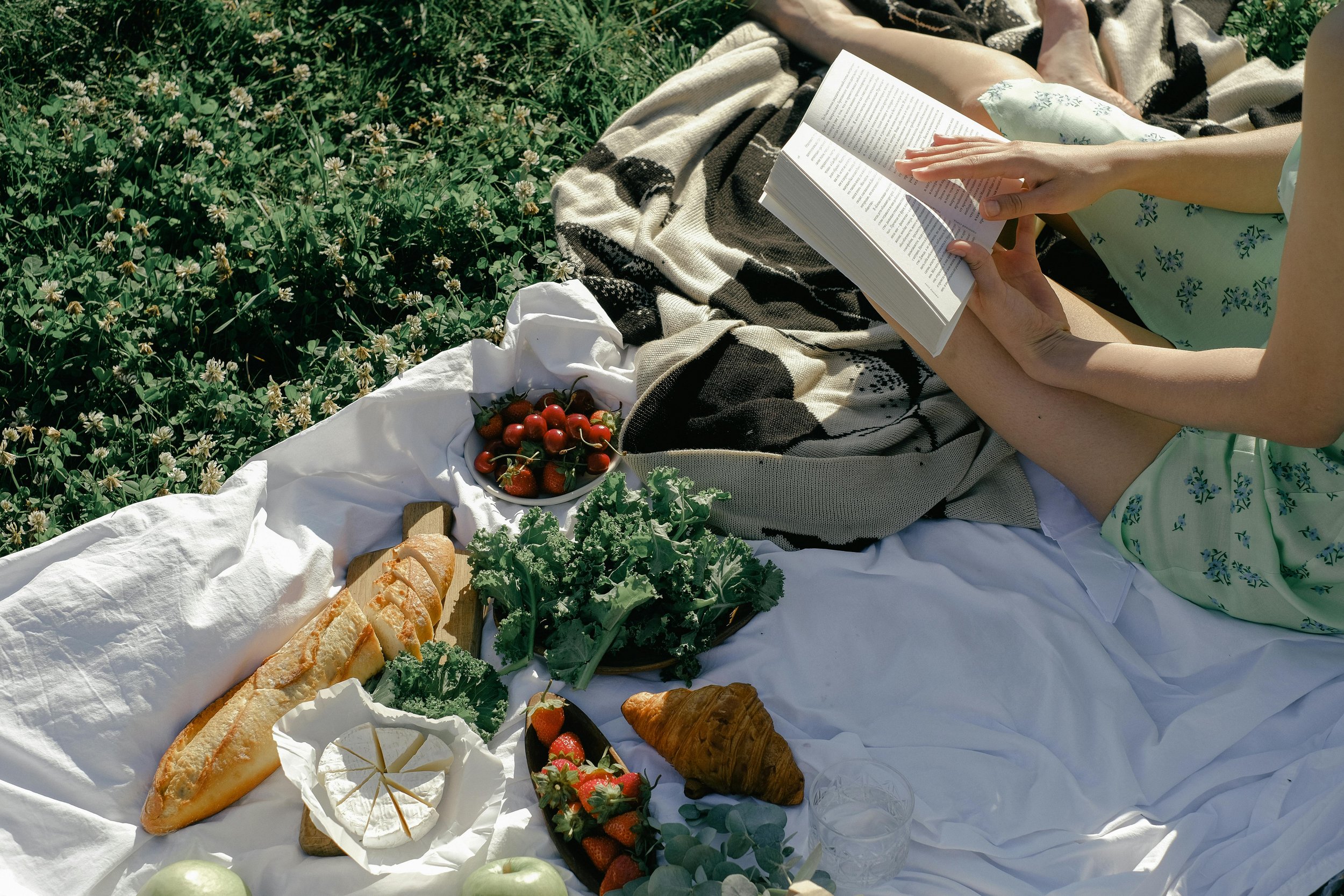When Friendships Fade: Embracing Change and Finding Peace
By Jasmine Torres
Spring 2025

Change is a natural part of life, but when it comes to friendships, it can sometimes feel unsettling. Perhaps after high school graduation and the beginning years of your adulthood, you have started to notice a distance between you and the people you once spent all your time with. You might wonder why this is happening if nothing has gone wrong, or you may start to feel fear about losing connections that once felt unbreakable. The truth is, as we grow and evolve, so do our relationships.
This doesn’t mean you’ve done anything wrong or that those friendships weren’t meaningful, it simply means life is leading you down different paths. Instead of resisting these shifts, learning to embrace and accept these changes can help you find joy in both evolving friendships and your own company.
Understanding the Evolution of Friendship Over Time
While our early friendships help define our identity, those we form later in life serve different roles, shaping our careers, supporting our responsibilities, and sustaining us through life’s transitions. Research on how friendship needs change over time highlights that as we mature, our social priorities shift. What we once needed from friendships in high school or early adulthood may no longer align with the realities of our personal growth and life direction.
During young adulthood, friendships serve as a mirror to our identity, helping us navigate our sense of self and social belonging. According to Suzanne Degges-White, Ph.D. a professor, licensed counselor, and expert in human development—friendships at this stage play a defining role in shaping who we are, or at least who we think we want to be. These connections provide emotional support and validation, reinforcing our social identity. However, as life moves forward, the friendships that once felt essential may start to fade. This does not necessarily mean they weren’t meaningful, but because we are growing into different versions of ourselves.

A Personal Perspective: Growing Apart After High School
For many, the transition from high school to adulthood is a turning point in friendships. Jimena Godinez, a college student at Aurora University, shared her experience with friendship changes after high school:
"After high school, I realized that someone I once considered my best friend no longer felt like one. I feel that some people mature faster than others, and as time went on, I recognized that the connection we once had wasn’t there anymore. We no longer had anything in common, and there was nothing keeping the friendship alive."
Jimena’s experience reflects what many people go through as they transition into adulthood—friendships that once felt unbreakable may no longer fit into our evolving lives. This doesn’t diminish the past connection, but rather highlights the natural process of growth and change.
Research suggests that this transition is not only normal but it can actually be beneficial. Previous studies indicate that young people generally navigate these social changes well, and their relationships tend to improve as they move from high school to college. Specifically, Furman and Buhrmester (1992) found that university students reported stronger, more positive relationships compared to high school students with higher levels of mutual support, greater balance in relationship power, and fewer conflicts. This aligns with broader theories suggesting that early adulthood provides a key opportunity to restructure social networks in a way that fosters deeper, healthier connections.
Friendships from our adolescence don’t always transition with us into adulthood, and that’s okay. As Dr. Degges-White points out, friendships define us in early adulthood, but they do not have to confine us as we grow.
Friendships from our adolescence don’t always transition with us into adulthood, and that’s okay.
Why Friendships Change in Adulthood
As people mature, their responsibilities, interests, and environments naturally shift, leading to adjustments in their social circles. Research on friendship quality during emerging adulthood shows that companionship and reliable alliance in best friendships increase slightly between ages 19 to 22 but begin to decline, particularly between ages 25 and 30.
This decline occurs as adult responsibilities take up more space in our daily lives, including:
Career advancement – As individuals focus on building their careers, work schedules become more demanding, leaving less time for socializing.
Romantic relationships – Early adulthood often brings an increased focus on romantic relationships, which can naturally lead to a decline in friendship intimacy over time.
Family obligations – Some individuals start planning for families, reducing their availability for friendships.
Geographical changes – Moving for work, school, or relationships can make maintaining close friendships more challenging.
As priorities shift, the time and emotional energy once dedicated to friendships naturally evolve, creating a sense of distance. While this change can feel unsettling, it’s a normal part of adulthood and doesn’t mean friendships lose their value, instead it means they transform in different ways.
Recognizing When to Move On from a Friendship
One of the hardest lessons about friendships is realizing that not all of them are meant to last forever. Jimena also shared an important reflection on letting go of relationships that no longer serve you:
"I wish younger me knew that it’s okay to let go of friendships. It doesn’t matter how long they have known you for—it’s better not to put pressure or effort into maintaining a friendship, especially when it becomes very one-sided. For me, it felt draining trying to save a friendship just because of how long it lasted."
Many people hold onto friendships out of nostalgia, guilt, or obligation, but Jimena’s experience serves as a reminder that the length of a friendship does not determine its quality. A friendship should feel mutual, supportive, and fulfilling, not one-sided or exhausting. If you find yourself always being the one to initiate conversations, make plans, or put in emotional effort without reciprocity, it may be time to let go.
Some signs of a one-sided friendship include:
You are always the one reaching out or making plans.
Your friend only contacts you when they need something.
You feel drained or unappreciated in the relationship.
The friendship doesn’t bring joy or support anymore.
Your friend doesn’t make an effort to understand your life changes.
Letting go of a friendship can be difficult, but choosing your peace and well-being is not selfish—it’s necessary.
Losing a friendship whether from gradually drifting apart or experiencing a sudden disconnect can be emotionally challenging. It’s natural to feel sadness, confusion, or even frustration when someone who once played an important role in your life is no longer present. However, instead of seeing this as purely a loss, it can also be an opportunity for personal growth, self-reflection, and new beginnings.
How to Cope with Changing Friendships
Acknowledge Life’s Changes – Friendships evolving over time doesn’t mean something went wrong. People change, and sometimes life takes them in different directions.
Reflect on What the Friendship Meant to You – Instead of dwelling on what’s lost, focus on the positive experiences, meaningful conversations, and lessons that shaped you.
Allow Yourself to Grieve – Friendships hold deep emotional value. It’s okay to feel sadness or nostalgia. Giving yourself space to process these emotions is a healthy part of moving forward.
Consider Reaching Out – If the friendship was particularly significant, you might want to initiate an open and honest conversation. Sometimes, reconnecting and understanding each other’s perspectives can repair a fading connection.
Seek Support if Needed – If you’re struggling with the transition, speaking with a therapist or counselor can help you process emotions and gain perspective.
Be Kind to Yourself – Self-compassion is key. Friendships change, and that’s a normal part of life. Every relationship—whether it lasts a lifetime or just a season—contributes to your personal journey.
In my conversation with Mary Johnson, a counselor at the Dyson Wellness Center, she shared helpful advice on coping with changes in friendships. She stressed the importance of talking to someone you trust—whether that’s a parent, older sibling, or friend. She also recommended reaching out to fellow students, as they may have gone through similar experiences. “Sometimes knowing you’re not alone can make a huge difference,” she said.
Mary and I also discussed how common these friendship changes are, and how important it is to talk openly about them. I want to remind you that counseling at North Central is free, confidential, and available to all students. Whether you walk in, call, or book through the HUB, the Dyson Wellness Center is a safe space for support—even for a one-time visit when you’re feeling overwhelmed. Mary emphasized that friendship losses are natural and not anyone’s fault. Friendships evolve, and it’s a part of life.
Rediscovering Fulfillment through Solitude
The shift in friendships can also be an opportunity to explore independence and self-discovery. Rather than fearing solitude, consider it a chance to reconnect with yourself and what truly brings you joy. Here’s how you can make the most of this transition:
Engage in hobbies and passions – Use this time to dive into interests that fulfill you, whether it’s painting, writing, fitness, or music.
Cultivate new friendships – As your interests evolve, you’ll naturally meet new people who align with the person you’re becoming.
Learn to enjoy solitude – Spending time alone can be empowering. Whether it’s taking yourself on a solo coffee date or traveling alone.
Embracing time alone can become a powerful tool for self-discovery and growth. This is where self-determination theory (SDT) provides valuable insights into the benefits of solitude. This framework suggests that well-being in solitude is not about isolation but about choosing time alone for relaxation and personal reflection. Studies have shown that positive solitude can lead to feelings of relaxation and peace, as opposed to the harmful effects of loneliness, which is often linked to negative emotional and physical outcomes. In fact, for many older adults, self-determined solitude leads to more positive emotions and provides them with the opportunity to recharge.
As you navigate the changes in your friendships, it’s important to remember that solitude can also be a source of joy and relaxation. Whether you're reading a book, pursuing a hobby, or simply taking a walk in nature, moments of self-determined solitude can enhance your overall well-being. In fact, Nguyen et al. found that most people experience positive emotions during solitude.
By learning to embrace solitude as a space for personal growth, you’ll find that it complements the shifts in your social network, allowing you to feel grounded and content, regardless of the changes happening around you.
Embracing the Change and Growth
Change is an inevitable part of life, and friendships are no exception. Recognizing that friendships evolve doesn’t diminish their past value; instead, it reflects personal growth. Rather than seeing it as a loss, embrace it as an opportunity to explore your independence, strengthen your self-identity, and form new connections that align with the person you’re becoming. Engaging in hobbies or activities you enjoy is a great way to become more comfortable with solitude. As Mary Johnson emphasized, balancing social interactions with time alone is crucial for emotional well-being. While connecting with others is important, learning to enjoy your own company is just as essential. Understanding that friendships change over time allows you to approach these shifts with confidence, appreciating lasting connections while embracing the journey of self-discovery.
Jasmin Torres is a junior at North Central College, majoring in Accounting with a minor in Marketing. As a first-generation student, she earned her associate degree from Joliet Junior College in May 2024 and transferred to North Central to complete her bachelor’s. She plans to graduate from North Central in May 2026. Jasmin values balance in all aspects of life, managing school, work, and personal time with responsibility. She enjoys spending time with friends, family, and her dog, Bombon, but also cherishes her alone time. Whether she’s studying, working, or unwinding, she strives to stay focused while making time for what matters most.


